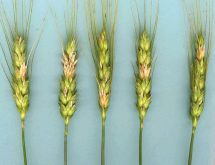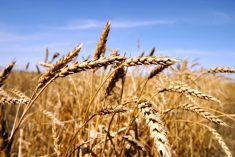As tempting as another battle over the CWB may be to farm leaders, we need to focus our attention on the immediate matter at hand: the inability of our farm programs to stabilize farm income.
The last federal throne speech made it perfectly clear. The sabres are rattling and the attack on the Canadian Wheat Board is back in the limelight. Farm groups on both sides of the debate will be polishing their well-rehearsed rhetoric and the lawyers will be handing out business cards at the courtroom door. It’s time to prepare for one more long, messy battle that almost everyone is tired of hearing about.
Read Also

June’s fast-moving grain markets
Summing up the grain markets: June 2025 was an interesting month for canola prices and geopolitics stole the spotlight from grain market specifics
There is just one problem. There is no battle. As much as Prime Minister Harper himself would love to drive a wooden stake into the heart of his arch nemesis, the Canadian Wheat Board, this minority government doesn’t have enough support in Parliament to do the dirty deed. Not even a skirmish. End of war.
So why bother to stir up all the ill will in a battle they know they can’t win? A more cynical person in the crowd might suggest it has more to do with diversion than implementation, not to mention that they get to blame the imminent failure on the opposition instead of themselves. But aside from the obvious situation with Iraqi detainees, what in agriculture are we diverting attention from?
In what could be best described as the non-event of the month, we are being asked once more to review the country’s Business Risk Management programs.
Our federal, provincial and territorial Agricultural departments are planning to consult with stakeholders in the industry before reporting back to their respective ministers prior to the next ministers’ conference in early July. Topics are to include challenges and opportunities facing the sector, but the big entree on the table is our farm programs.
JUST IN TIME FOR SEEDING
The timing couldn’t better planned. Everyone knows that farmers have nothing better to do in the spring than sit in meetings and “consult,” so we can be sure the turnouts will be stellar. Once again, our voice will ring “loud and clear” in the minister’s office.
Loud and clear, much the way they heard us say that CAIS had to go after the last review. In fact, I suspect the list of requests will sound much like the last consultation that happened shortly after the present government took office.
Now granted, they did go back to Ottawa and do due diligence in changing CAIS’s name to Agri-Stability with new letterhead and all. They even got inventive and added a new expense in the form of Agri-Invest… just in case farmers had run out of places to store money for the government. What remains to be seen is if the department is prepared to make any significant changes from the original CAIS template, regardless of what agriculture needs or wants.
CAIS told me I should subsidize my canola production with hogs. Agri-Stability told me I should subsidize my hog production with canola. At the moment, grains appear to be in a slump, and any recovery in the livestock sector is tenuous at best. Sooner or later, we need to address the root problem that has been inherent in our farm programming since the signing of the original Agricultural Policy Format.
It isn’t working. If nothing else, the livestock sector has demonstrated that it hasn’t worked in the past, and if the grain sector is next to crumble, it won’t work for them in the future.
As tempting as another battle over the CWB may be to farm leaders, we need to focus our attention on the immediate matter at hand: the inability of our farm programs to stabilize farm income.
Ineffective Business Risk Management could become a tremendous hazard in our communities if grains go into a major slump, and interest rates begin to rise. The sectors best suited to receive support could well determine which operations survive the next five years.
The farm community is a busy place during spring preparations, but we need to make our positions heard. Attacks on the Canadian Wheat Board have dragged on for years. We can’t afford to wait that long for effective farm programs.
Les McEwan farms near Altamont, Manitoba


















